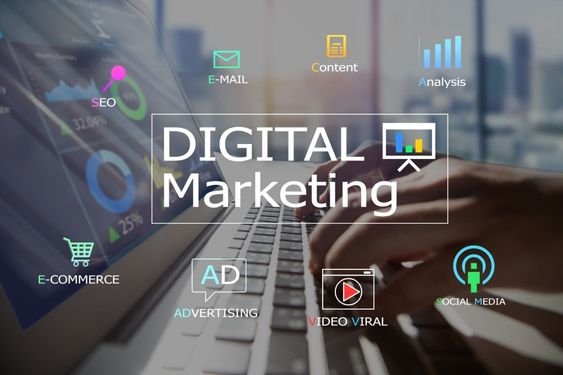Certification in Digital Marketing (CDM)

Price
Get Started
The Certification in Digital Marketing direction is designed to provide students with a complete understanding of digital marketing strategies and strategies. This application covers numerous factors of virtual advertising, including search engine optimization (search engine marketing), social media marketing, email advertising and marketing, and analytics.
Course Duration: 3 months (12 weeks)
Course Objectives:
To offer students with a sturdy foundation in digital advertising and marketing concepts and practices.
To expand skillability in key virtual advertising tools and platforms.
To allow college students to create and enforce powerful digital advertising campaigns.
To prepare students for a profession in virtual advertising and marketing or beautify their existing competencies.
Week 1: Introduction to Digital Marketing
Module 1: Overview of Digital Marketing
Session 1: Course orientation and introduction to virtual advertising.
Session 2: History and evolution of virtual advertising.
Session 3: Digital marketing vs. Traditional advertising and marketing.
Module 2: Digital Marketing Strategies
Session 4: Understanding virtual marketing channels and systems.
Session 5: Setting SMART goals for virtual advertising and marketing campaigns.
Session 6: Creating a digital marketing approach and plan.
Week 2-3: Website and search engine optimization Optimization
Module 3: Website and Landing Page Optimization
Session 7: Importance of web site design and consumer revel in.
Session 8: Landing page optimization for conversions.
Session 9: Mobile optimization and responsive layout.
Module 4: Search Engine Optimization (SEO)
Session 10: Introduction to search engine marketing and its function in virtual advertising and marketing.
Session 11: Keyword studies and on-web page optimization.
Session 12: Off-page search engine optimization and link-building strategies.
Week 4-5: Social Media Marketing
Module 5: Social Media Marketing
Session 13: Creating and optimizing social media profiles.
Session 14: Content creation and scheduling.
Session 15: Social media advertising and campaigns.
Module 6: Social Media Analytics
Session 16: Measuring social media overall performance and ROI.
Session 17: Social media listening and sentiment analysis.
Session 18: Using social media insights to refine strategies.
Week 6-7: Email Marketing and Content Strategy
Module 7: Email Marketing
Session 19: Building and segmenting email lists.
Session 20: Creating effective e-mail marketing campaigns.
Session 21: Email marketing analytics and A/B testing.
Module 8: Content Strategy and Marketing
Session 22: Content advertising and marketing basics.
Session 23: Creating first rate content material for digital advertising.
Session 24: Content distribution and merchandising.
Week eight-nine: Paid Advertising and Analytics
Module 9: Paid Advertising
Session 25: Introduction to pay-in step with-click (PPC) marketing.
Session 26: Google Ads and Facebook Ads campaigns.
Session 27: Budgeting and optimizing paid ad campaigns.
Module 10: Digital Analytics
Session 28: Understanding net analytics tools (e.G., Google Analytics).
Session 29: Analyzing website traffic and user conduct.
Session 30: Data-driven choice-making and reporting.
Week 10-12: Final Projects and Graduation
Module 11: Digital Marketing Projects
Session 31: Planning and executing digital advertising and marketing campaigns.
Session 32: Managing a real-global digital advertising undertaking.
Session 33: Measuring venture achievement and ROI.
Module 12: Portfolio Development and Graduation
Session 34: Building a virtual marketing portfolio.
Session 35: Portfolio review and critique.
Session 36: Preparing for graduation and receiving the certification.
Assessment and Evaluation:
Regular attendance and lively participation in lectures and realistic sessions.
Completion of virtual marketing assignments, projects, and campaigns.
Improvement in virtual advertising skills, analytics, and campaign effectiveness.
Successful execution of a real-international virtual marketing challenge.
Materials Required:
Access to digital advertising and marketing tools and platforms (e.G., Google Ads, social media advertising equipment).
Access to web analytics software program (e.G., Google Analytics).
Laptop or laptop with net get admission to.
Textbooks and reference materials on virtual advertising and marketing.
This Certification in Digital Marketing course is designed to provide college students with the know-how and skills needed to excel within the field of virtual advertising and marketing. It combines theoretical principles with palms-on realistic experience, permitting students to create and control virtual marketing campaigns effectively. Upon of entirety of this application, students can be well-prepared for a career in virtual advertising or to enhance their existing capabilities in this swiftly evolving area.
JOB AREA IN
Content Marketing, Digital Marketing, Blogger, Freelancer.
